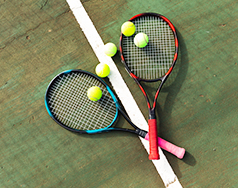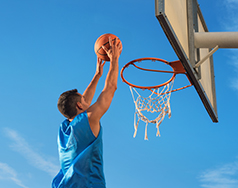

The Certificate for Secondary Programme is designed for students, aged 16 years and above, who have completed Grade 10. The programme fills a crucial gap for students by keeping them academically engaged during a transition period, between finishing their secondary school and moving on to higher-level international programmes, such as the International Baccalaureate Diploma Programme (IBDP).
Spread over a period of five (5) months, the programme aims to provide students with a comprehensive learning experience that includes academics and extracurriculars. It ensures students stay engaged in their studies while also exploring new interests and enhancing key life skills, needed to thrive in today’s dynamic world.
With modules in English, Maths, Foundations of Knowledge, and a choice of Co-curricular activities, such as Culinary, Visual Arts, Tennis and Basketball, the programme aims to prepare students for future academic challenges and personal development.
By the end of the module, students will demonstrate an ability to engage critically with diverse texts, spanning across media and forms, originating from different historical periods, styles, and cultural contexts. Moreover, students will cultivate proficiency in the essential language skills of listening, speaking, reading, writing, viewing, presenting, and performing. Throughout the module, students will acquire advanced skills in areas such as interpretation, analysis and evaluation – enabling them to critically assess and comprehend a wide range of textual materials.
Upon completion of the module, students will have the ability to demonstrate a comprehensive understanding of mathematical concepts, principles and the nature of Mathematics as a discipline. By engaging in problem-solving activities, students will develop logical and creative thinking skills, as well as cultivate patience and persistence, fostering confidence in their application of mathematical concepts. Students will actively employ and refine their abilities to abstract and generalise mathematical concepts, enhancing their overall problem-solving and analytical skills.
By the end of the module, students will have the ability to draw meaningful connections between academic disciplines and multiple perspectives, fostering open-mindedness and intercultural understanding, and a global worldview. Students will be able to actively engage on the central question, "How do we know that?", and recognise the intrinsic value of posing this question in various contexts. Throughout the module, students will be exposed to ambiguity and questions with multiple plausible answers, fostering an ability to navigate complexity, and embrace diverse perspectives.
(From the four available options, students must select one):

Develops skills in fundamental culinary techniques, menu planning, and food safety practices, while fostering creativity in recipe development and effective teamwork in a collaborative kitchen environment.

Through hands-on projects, critical analysis, and study of art history, students will gain a strong foundation in the principles and elements of design, as well as an understanding of the cultural and social significance of art.

The aim is to master fundamental tennis techniques, develop strategic decision-making, and enhance physical fitness through targeted training. Students will also focus on sportsmanship, fair play, and competing at a proficient level in matches and tournaments.

Develops proficiency in foundational basketball skills, teamwork, and strategic understanding of the game, while enhancing physical fitness. Students learn to embrace values such as sportsmanship, fair play, and respect for all participants.